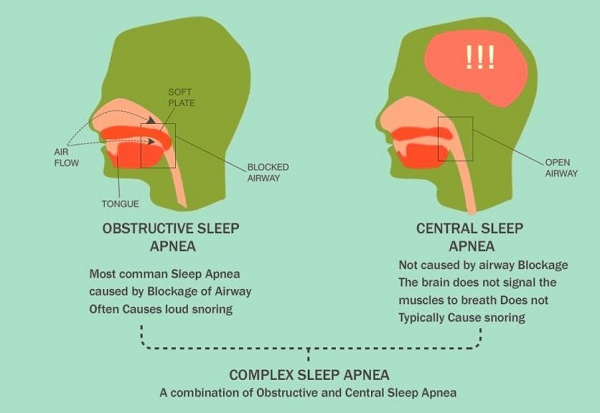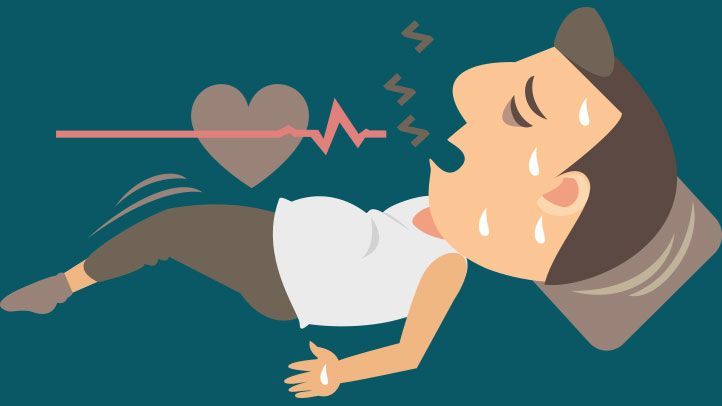Sleep Apnea is a medical condition where you repeatedly stop and start breathing while you sleep. There are several types of breathing disorders, but the most common type is Obstructive, which occurs when your throat muscles intermittently relax to the point of collapse, blocking the airway during sleep, often causing the person to snore.
The second type is called Central, which occurs when your brain doesn’t send proper signals to the muscles that control breathing.

Only 3% of people in the normal-weight range develop the condition, but the percentage jumps considerably for people who are overweight or obese to a staggering 20 %.
Breathing disorders affect men more than women, while the percentage increases sharply in women after menopause.
Breathing disorders can cause short-term sleep deprivation, affecting mood and safety at work and while driving.
It’s also strongly linked to life-threatening chronic conditions like heart disease, high blood pressure, stroke, Type 2 diabetes, and depression.
Treatments for breathing disorders involve using a device (CPAP) that uses positive pressure to keep your airway open while you sleep.
Symptoms of Sleep Apnea
Some of the symptoms include:
- Poor quality sleep – with regular periods of reduced or absent breathing often accompanied by loud snoring and gasping for air.
- Dry mouth and headaches upon waking
- Daytime sleepiness and fatigue.
- Irritability and mood changes.
- Poor concentration, poor memory and slow reaction times.
- Depression and anxiety.
- Impotence (erectile dysfunction) and reduced sex drive (libido).
- Need to get up to the toilet frequently at night.
Breathing Disorders Complications
Daytime fatigue. The repeated awakenings associated with sleep apnea make normal, restorative sleep impossible.
High blood pressure or heart problems. Sudden blood oxygen levels drop during sleep increases blood pressure and strains the cardiovascular system.
Type 2 diabetes. Breathing disorders increase your risk of developing insulin resistance and type 2 diabetes.
Complications with medications and surgery. Obstructive breathing disorders are also a concern with certain medications and general anesthesia.
Liver problems. People with breathing disorders are more likely to have abnormal results on liver function tests, and their livers are more likely to show signs of scarring.
[DISPLAY_ULTIMATE_SOCIAL_ICONS]

